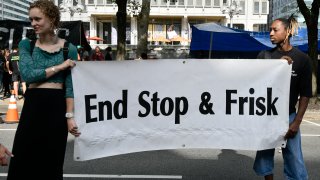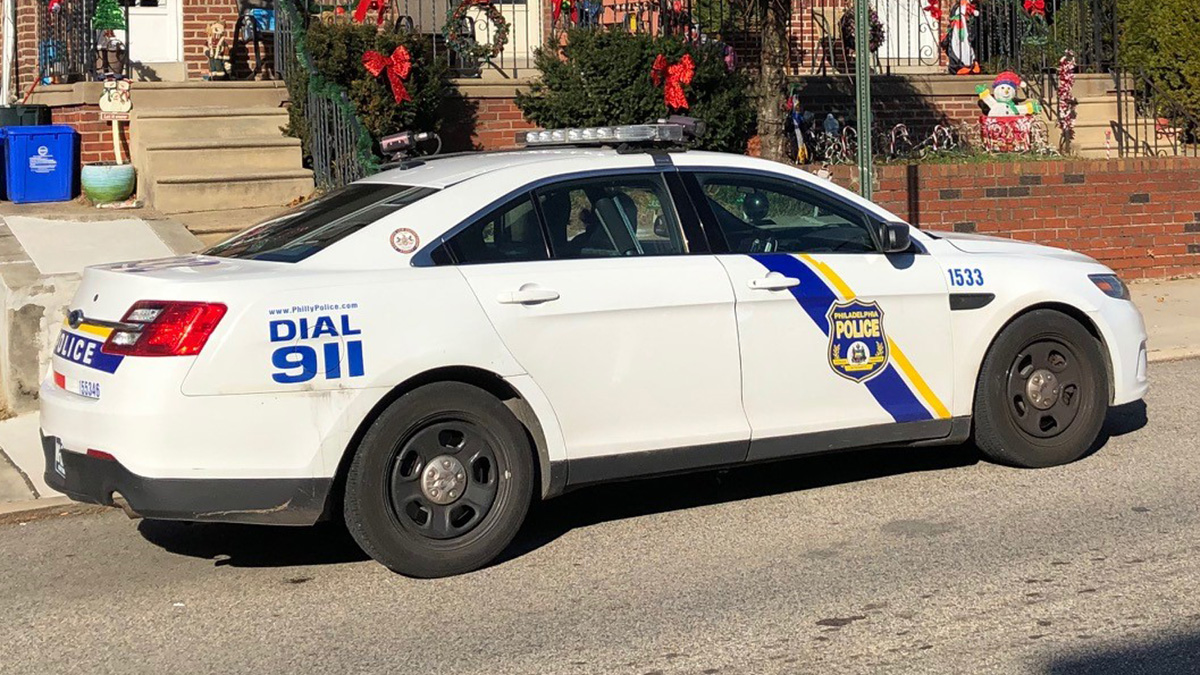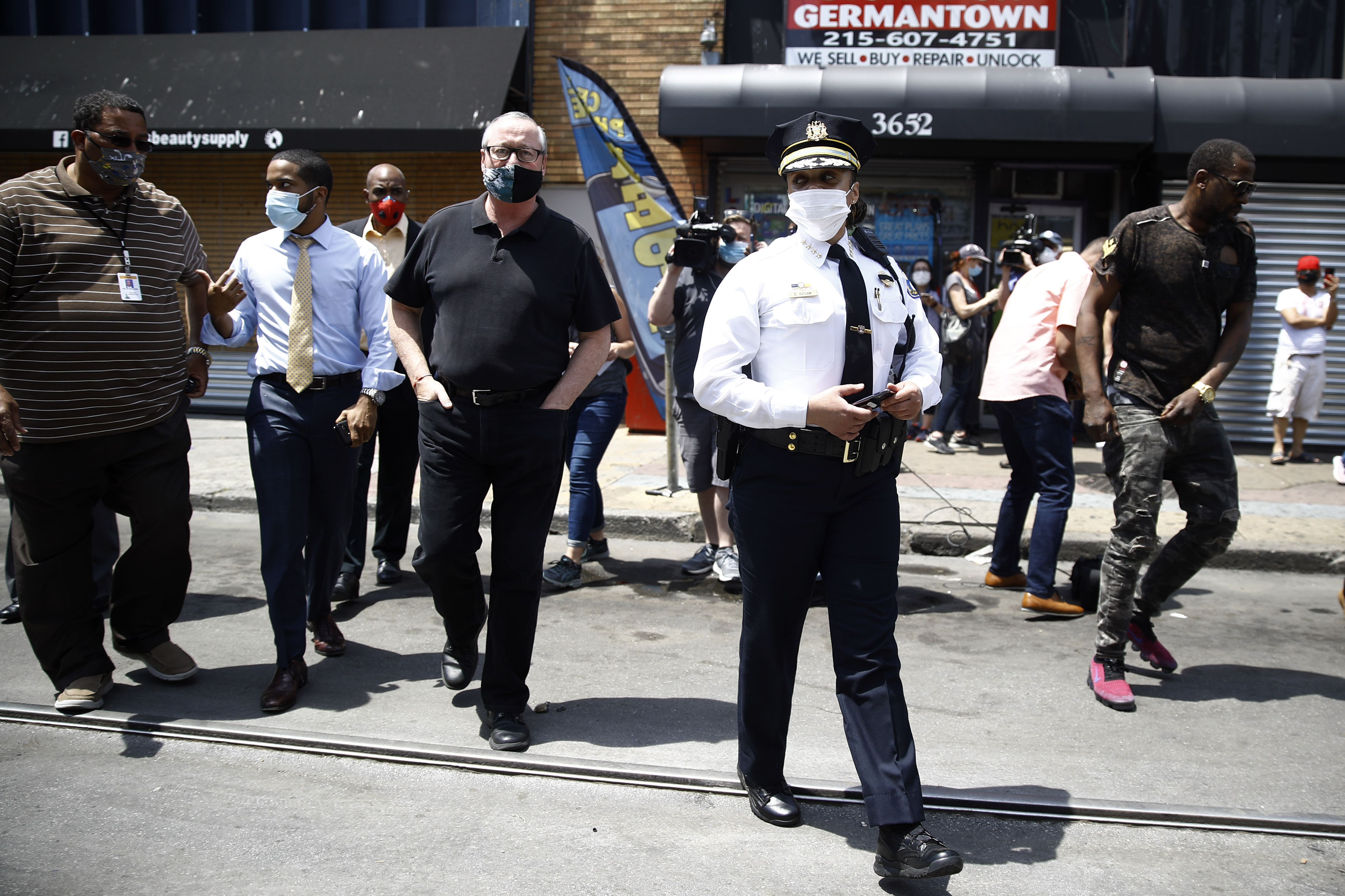
Philadelphia City Council members on Friday spoke out in favor of allowing voters to choose whether to amend the city’s Home Rule Charter in order to eliminate the controversial stop and frisk policing policy.
In a hearing that Councilman Curtis Jones acknowledged served somewhat as “group therapy” for Council members, city officials decried the effects of stop and frisk and the propensity of most cases to involve Black people.
Councilman Derek Greene referenced the 1968 Supreme Court decision Terry v. Ohio, which cleared the path for stop and frisk by holding that police could search for weapons on someone’s body if they have reasonable suspicion the person might be armed.
“Too often, that ‘reasonable, articulable suspicion’ is being African American,” he said, recounting a time when he was an assistant district attorney and was pulled over while leaving the DA’s office for what an officer told him was “fitting the description” of a suspect.
A report by the ACLU of Pennsylvania backs up the claim that Black people are more likely to be stopped and frisked. In a random sample chosen between October and December of last year, 71% of pedestrians stopped in Philadelphia were Black. Eighteen percent of those stopped and 39% of those frisked were ‘without reasonable suspicion,’ making them unconstitutional.
More than one out of every three frisks in Philadelphia is legally unfounded, the report notes.
In 2011, the ACLU of Pennsylvania reached a settlement with the City of Philadelphia wherein the city’s police department must collect data on stop and frisks.
David Rudovski, a civil rights attorney and senior fellow at the University of Pennsylvania’s Carey Law School, was one of the lawyers representing the plaintiffs in the suit.
Speaking at Friday’s hearing, he said stop and frisk has been ineffective in its “main purpose,” which is getting guns off the street.
“Of all the stops that were made in 2019, it was less than 1% of those stops that produced any contraband and less than ½ of 1% that produced a weapon,” Rudovsky said. In addition, a sample of 485 frisks produced only seven guns, he said.
Hans Menos, executive director of the Police Advisory Commission, also expressed his support of ending stop and frisk, and said harsh policing tactics lead to civil unrest like the type the country has experienced since the death of George Floyd.
“You can draw a direct line between these types of tactics and why we have days of protests,” he said.
Though Councilwoman Cherelle Parker introduced the proposal to amend the Home Rule Charter, which serves essentially as the city’s constitution, back in January, it has gained momentum in recent weeks following mass protests against racism and police brutality and a spate of reform bills recently introduced by City Council.
A spokesperson for Mayor Jim Kenney’s press office said his administration is “reviewing the legislation and share(s) the sentiments of the proposal.” The spokesperson highlighted that the number of pedestrian stops has declined by 64% since Kenney took office, and the number of stops without reasonable suspicion dropped by 92% from 2005 to 2019.
The spokesperson said Kenney looks forward to working with the council to “institute meaningful change for the city.”
But Police Commissioner Danielle Outlaw has seemed more hesitant, at least on the question of ending stop and frisk, which she does not support getting rid of.
“We have to track it, we have to measure it, and ensure that we’re not abusing this tool that is available to us,” she said during Wednesday's virtual budget hearing.
Outlaw did not respond to a request for comment.
Councilwoman Jamie Gauthier, though, disagrees with the idea that stop and frisk can be an effective policing tool.
“It exacerbates the issues that exist between Black communities and communities of color and the police. People should be able to walk our streets without an automatic suspicion that they’re committing a crime because they’re Black,” Gauthier said.
If Council continues to push for the end of the practice, Philadelphia voters may themselves get to decide its future come November.
NBC10 Investigative Reporter Mitch Blacher contributed to this story.



